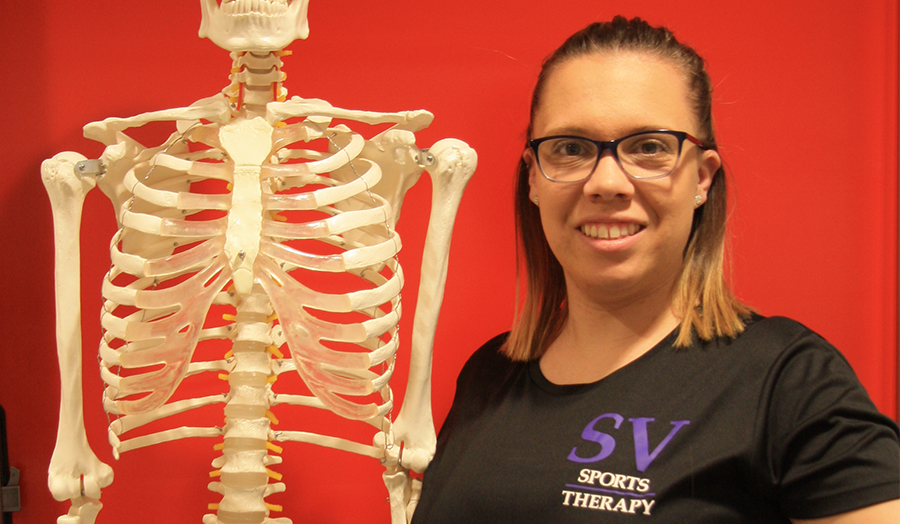Nicole Gipps graduated from London Met in 2015 with a Sports Therapy BSc. Since graduating, Nicole has worked for a private health clinic and for Harlow Rugby Club. She also spent a year at London Irish on the post-match massage team, helping their first team recover from match days. Nicole has also worked for rugby teams in her local area as well as schools in the Brighton area with PhysioScience.
We understand that you specialise in treating people with connective tissue disorders such as Ehlers Danlos Syndrome (EDS) and Hypermobility Spectrum disorder (HSD), partly as a result of having EDS yourself. Can you explain what challenges these conditions involve and how you can help?
These conditions cause joint laxity, poor motor control and poor awareness in space. As a sports therapist with EDS, I've learnt how to adapt my knowledge to help those in a similar position to myself. I create person-specific exercise programmes to target areas of weakness, or tightness, and will adapt exercises to suit the individual.
Can you tell us a bit about your background and why you chose to study at London Met?
I chose London Met as originally I was on the Sports and Dance Therapy course (London Met is the only university that does this course). Then after the end of the first year I moved onto the Sports Therapy course. It was an easy transition as all the sport science courses were together as one for the first year.
Did you get to work in the sports therapy clinic at London Met?
As part of the third year we got to go on placement. I chose to do mine at my local football club with another graduate sports therapist. I learnt how to assess quickly pitch-side, and how to adapt clinic work for a small football team.
We also had to put in several hours in a clinic. London Met has its own clinic in which we all got to treat clients. We learnt how to take notes and put all our knowledge into practice. I also volunteered for Cancer Research through the University at the London Marathon, which was an amazing experience.
What did you enjoy most about your course?
I liked the size of the classes as they were relatively small. We had lots of opportunities to work one-to-one with lecturers. I also enjoyed the variety within the course, the second year in particular as we got to choose an optional subject, in which I chose sports coaching.
We understand you were a cheerleader and did some dancing at Uni. Can you tell us more?
I was a cheerleader for the first two years at London Met. I got to compete at regional competitions in the Pom Squad, where we won the Christmas regional cheerleading championship in Crystal Palace in my first year. This was a great opportunity to get involved with a uni sports team and meet new people outside of my course.
Any advice for today’s sports therapy students?
To get as much experience as possible while in university. Volunteer at any events open to sports therapists and experience all sides of sports therapy in placement hours. Always be willing to learn more.

